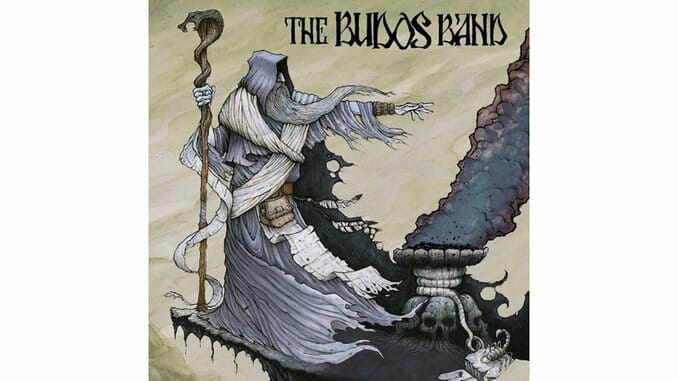The Budos Band: Burnt Offering

For the first five years of their existence, it was a fairly simple matter to take a guess at the title of the next Budos Band recording. That’s what happens when your debut is called The Budos Band and the next two albums are The Budos Band II and The Budos Band III. That’s called establishing a precedent. And so, when the Staten Island “instrumental afro-soul” band announced that their Oct. 21 album would be titled Burnt Offering rather than The Budos Band IV, it was clear that something was up.
Reviews of Budos recordings tend to minimize the amount of growth and transformation that did go on between Budos Band I and III. The three LP’s can’t rightly be called “extensions of the same musical thought”—they’re more like a journey down an increasingly apocalyptic road. Like a high fantasy novel, they begin in a place that is bright and almost (relatively) innocent before growing and multiplying in the audaciousness and opulence of their arrangements. By the end of Budos Band III, there’s a distinct impression that these sprawling funk instrumentals are teetering on the edge, clearly brilliant but moments from spinning out of control. The band is performing music like Bobby Fischer played chess. It may have simply been an unsustainable arc.
-

-

-

-

-

-

-

-

-

-

-

-

-

-

-

-

-

-

-

-

-

-

-

-

-

-

-

-

-

-

-

-

-

-

-

-

-

-

-

-








































